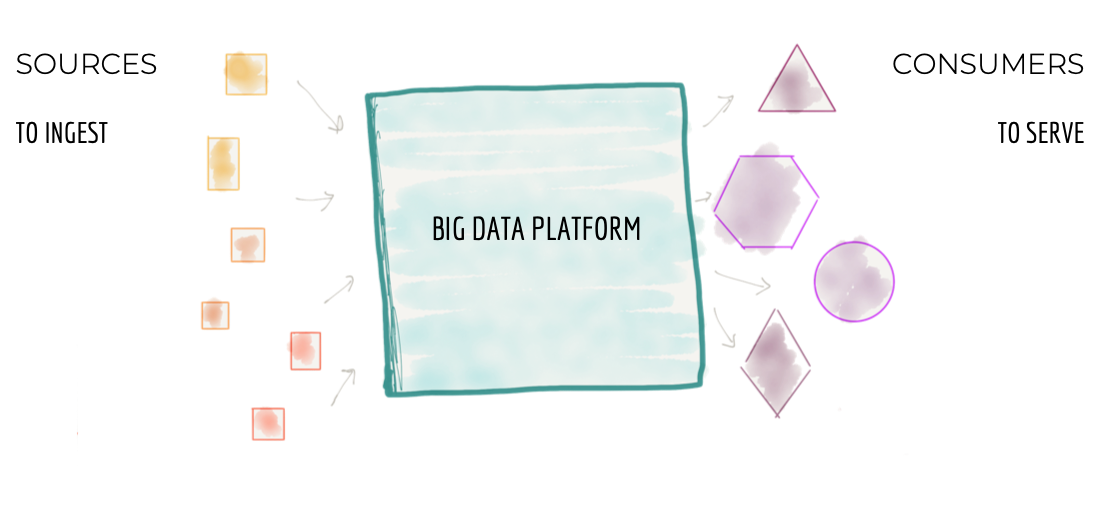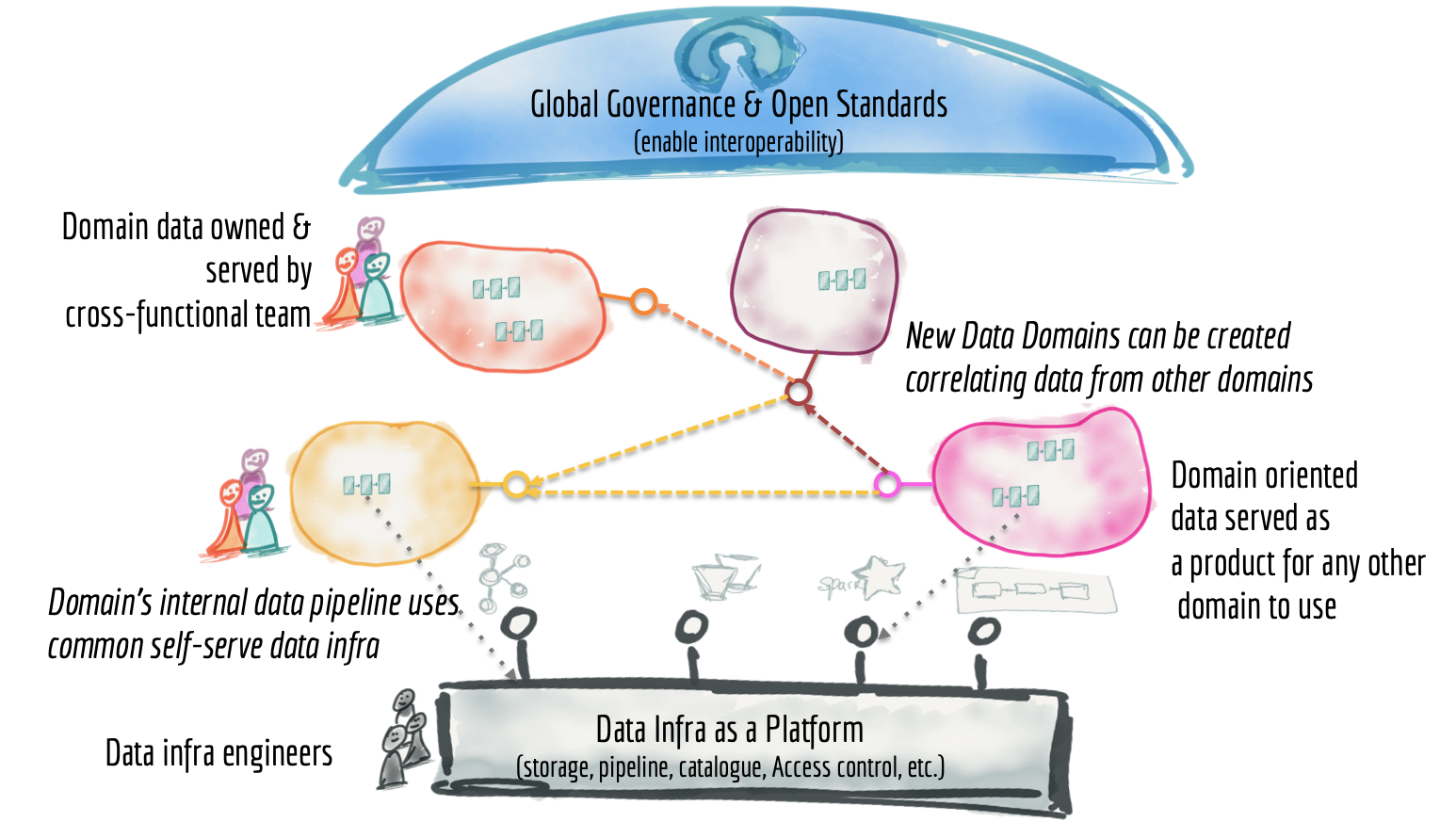What is Data Mesh and how can marketing teams prepare for it?
(Note: A lot of this research and materials are sourced from the pioneer of Data Mesh herself, Zhamak Dehghani. Sources and references are below the article.)
Before we get into Data Mesh, how is data usually managed?
Typically data is managed and centralised in data warehouses. These data warehouses ingest data from different sources such as apps, websites, products, sales and so on.
There are several challenges with this centralised, monolithic approach. These include scaling problems, bottlenecks, slow to access and experiment, centralising data that may not require centralisation, inconsistent taxonomy, unclear definitions, and it being a single-point-of-failure.

So what is data mesh?
Data mesh is an approach which relies on distributed data and ownership. Instead of data all being centralised in a large data warehouse, it strives to have a more scalable approach.
However with this approach there are also trade offs including data business ownership, data quality, access and governance.
Data mesh addresses this with their 4 x key principles that should be used when implementing a data mesh in any organisation. They are:
- domain-oriented decentralised data ownership and architecture (e.g. marketers have the responsibility and own the data coming from marketing platforms and could also be stored in the platforms or a warehouse)
- data as a product, (marketing data is being managed in a way that it is seen as an effective product, including ensuring its trust worthy, truthful, easy to find, structured correctly and governed)
- self-serve data infrastructure as a platform, (flexibility to access through self-serve instead of requesting a data team)
- federated computational governance. (clear governance and ownership of data within different teams).

How can my marketing team prepare for data mesh?
Data mesh is still a new concept however there are ways your team can prepare for it:
- Consult with your data team and upskill your marketing team in the organisation's data lifecycle and other team's data
Data mesh will require a mutual understanding of data and requires collaborative between teams. It's important that the organisation has training for teams to understand data mesh and marketers to also have these data skills.
- Understand the data being produced from your marketing platforms
Data mesh will put more focus on the data responsibility of teams and their data domains, so marketing teams need to understand what data their platforms are producing.
The data that marketing teams own will depend on the organisation type and size. However, some examples of the data that marketing platforms produce could include social media engagement (impressions, clicks), email engagement (open rate, click through), digital asset labels, subscriptions, customer data and others.
Marketing teams need to know what data is being produced and being owned by marketing.
- Manage your marketing data and set guidelines for the use of this data outside the marketing team
Data mesh allows for other teams to access marketing data, so it's important that marketers know the definitions of the data and set organisational guidelines of when it should and shouldn't be used.
An example is let's say a product team wishes to personalise their product with website imagery however the data is stored in the marketing team's digital asset management platform. It's up to the marketing team to have a consistent naming convention and provide guidance on how this data should be used.
Treating marketing data as a 'product' with its own set of guidelines and use is important for the data mesh approach to be successful.
Martech Playbooks verdict
Data mesh provides a new philosophy and approach to data storage and management designed to improve scalability in a world increasingly becoming more dependent on data.
While Data Mesh is an exciting concept, with de-centralisation and distributed ownership comes a new set of risks including quality control, data skillset across non-technical teams, unclear ownership of marketing data, as well as privacy and security risks.
Martech Playbooks recommends to design your data strategy and approach based on your organisations data maturity and goals. For some organisations the current data warehouse model is sufficient while others may wish to scale their data efforts and have the right data support. Implementing Data Mesh without complete organisational alignment is a recipe for disaster. However with executive and organisational alignment, data support and the desire to scale, data mesh may be the approach your organisation needs to take your data and digital marketing to the next level.
Additional resources on data mesh:




